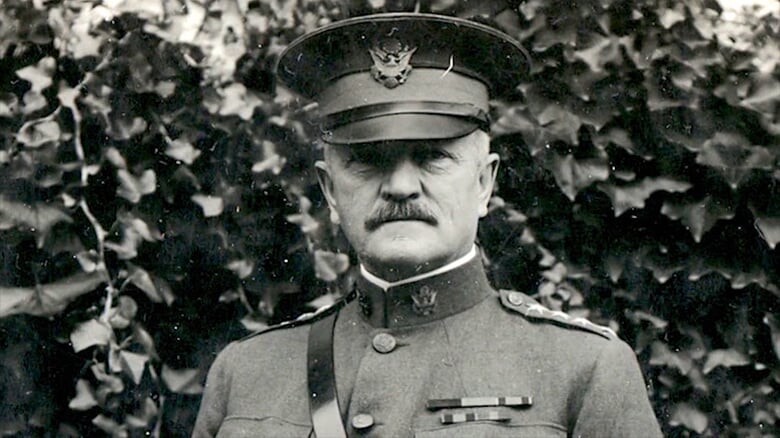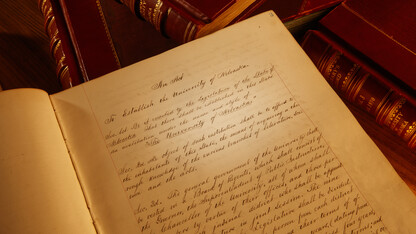
The broadcast premiere of “Black Jack Pershing: Love and War” coincides with this year’s 99th anniversary of World War I’s armistice.
The documentary, produced and directed by Nebraska’s Barney McCoy, professor of broadcasting in the College of Journalism and Mass Communications, tells the story of General John J. Pershing, commander of the American Expeditionary Forces in World War I and the only active duty six-star general in U.S. history.
The one-hour program will debut at 9 p.m. Nov. 11 on NET. Pershing commanded 2 million U.S. troops who helped win the Great War and established America as a global superpower. Pershing also had strong Nebraska ties. He was head of University of Nebraska’s military cadet program in the 1890s, earned a law degree at the university and owned a home in Lincoln where his two sisters lived.
“Black Jack Pershing: Love and War” reminds us of the historic lengths Pershing went to serve his country even as he battled deep personal tragedy in his life,” said McCoy, who conducted five years of archival research examining Pershing’s personal papers and interviewed historians and Pershing family members for the documentary. “The project also reveals the extraordinary sacrifices Americans made at home and abroad during the first World War.”
There will be a sneak preview and discussion of “Black Jack Pershing: Love and War” at 7 p.m. Nov. 8 at the Mary Riepma Ross Media Arts Center.
Free tickets for the screening are available at the Ross beginning Nov. 1., or they can be reserved online. The College of Journalism and Mass Communications at the University of Nebraska–Lincoln is hosting the screening.
“Black Jack Pershing: Love and War” will broadcast statewide on NET at 9 p.m. Nov. 11; at 4 p.m. Nov. 12; and at 8 p.m. Nov. 17.
“Black Jack Pershing: Love and War” is co-produced by Painted Rock Productions and NET Nebraska’s PBS Station. It received funding from Lowell Vestal, Sandra S. Pershing, Humanities Nebraska, University of Nebraska–Lincoln’s Research Council, and the Gilbert M. and Martha H. Hitchcock Foundation. Production support for the documentary was provided by the College of Journalism and Mass Communications.







